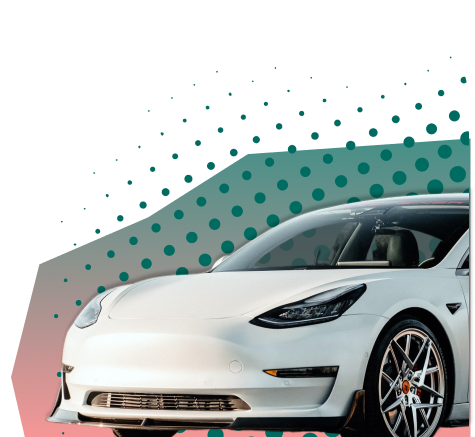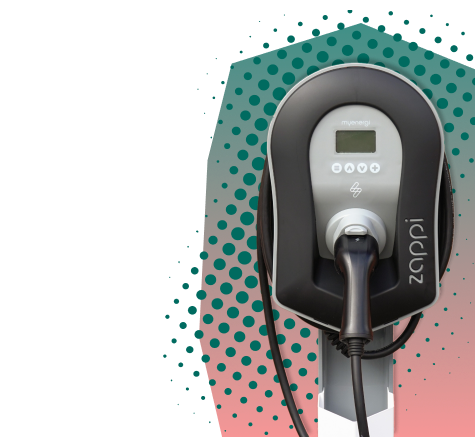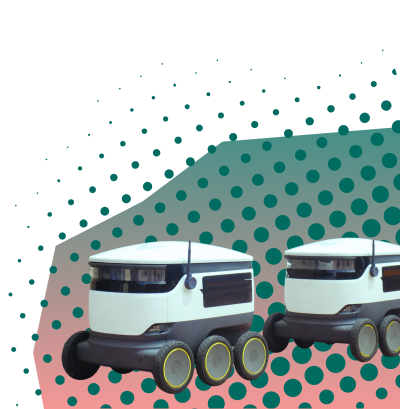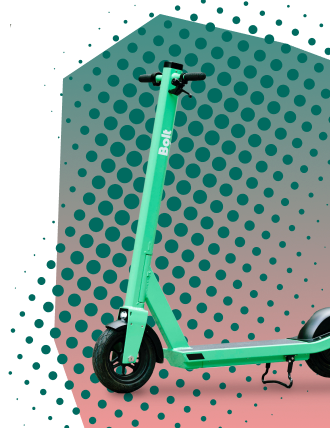Singapore has created a vibrant ecosystem to nurture and develop technology-based startup enterprises. It is ranked as the fourth-best startup ecosystem in Asia, according to one source, behind Beijing, Shanghai, and Tokyo. Globally it is ranked 17th. As a result, the city-state provides a good example of what comprises a supportive ecosystem and the functions of the key players.
This article showcases our top picks for the best Singapore based GreenTech (CleanTech) companies. These startups and companies are taking a variety of approaches in innovating the GreenTech industry, but are all exceptional companies well worth a follow.
There awaits tremendous development and futures for these firms with the incredible funding prospects they have earned.
Here is our pick of the key players in the GreenTech market in Singapore:
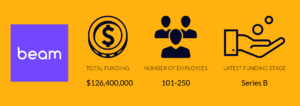
Beam is a micro-mobility startup that encourages users to park their e-scooters in pre-determined parking spots via its app by offering incentives, instead of parking them anywhere randomly on the street.
This Singapore-based company is APAC’s largest and fastest-growing micro-mobility company, operating across five countries across the region. In a bid to learn more about those markets, Beam recently launched the Micromobility Research Partnership, bringing together academics from Australia and New Zealand to “identify and promote priority pathways to reduce global transport emissions.
Beam has been a certified climate-neutral company since 2019. The company is now implementing a Reduction Action Plan to reduce emissions in its operations and supply chain into the future and has also pledged to go carbon negative by 2025 – meaning it will go beyond net zero and remove additional carbon dioxide from the Earth’s atmosphere.
Beam’s research showed a “growing” proportion of riders were choosing to use e-scooters for their environmental benefits, with 75% of regular riders saying they were using their car less now that they had access to the two-wheeled rides.
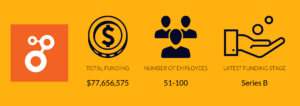
Founded in Singapore in 2016, the company has introduced an impressive number of industry world firsts and pioneering innovations including e-scooter battery swapping, geofencing control, and integrated helmets.
The continuous operational data and feedback enable the company to adapt and update their vehicles quickly to perform better and last longer, this gives the company its competitive advantage as more cities across the world look to select only the best and most innovative micro-mobility providers.
The technology includes industry-leading High Accuracy Location Technology (HALT) which can correct GPS variance to locate an e-scooter to within 10 centimetres rather than the industry norm of five to ten meters. It also includes a range of smart sensors and a Dangerous Riding Detection system, which will combat sidewalk riding, aggressive swerving, skidding, tandem riding, and curb jumping. The technology allows the company to correct or penalize unsafe behaviors while also incentivizing safe riding.
Neuron has integrated with Google Maps to help commuters easily locate their nearest available e-scooters and e-bikes for a safe, convenient, and sustainable first and last-mile transport option. Riders can now better plan their journeys in real-time, with the information provided as to how long it takes to reach the vehicle, the battery range, and the expected arrival time at their destination for a seamless multi-modal experience. Neuron’s e-scooters and e-bikes have been widely embraced in Canada with 46% of trips directly replacing a car journey, reducing congestion, and saving an estimated 120 tonnes of CO2 emissions.

GrabWheels is the mobility arm of Singapore-based ride-hailing titan Grab that provides an electric scooter sharing service that is operational in multiple countries across the APAC region. Grabwheels plan to develop, accelerate, invest, and deploy two-wheel EVs, specifically KYMCO’s Ionex electric bikes, as well as the Ionex EV charging platforms in cities where Grab operates. They also plan to conduct a research study on how best to develop a shared two-wheel EV service and build an electric charging infrastructure.
Grab has added safety features for the relaunch, including transmitting sensors built into the scooters to limit their use in forbidden areas, such as pedestrian bridges, automatic lights, and reflectors as well as a forced speed limit of 15 kilometers per hour.
The way it works is simple: You can download the GrabWheels app (available on iOS and Android), which you can use to locate e-scooter parking stations. Once you locate an available e-scooter, you can power it up by using the app to scan a QR code on the vehicle.

SWAT Mobility’s vehicle-routing technology helps companies, transport operators, and government agencies around the world solve complex transportation challenges.
They are the first in Asia to run high-capacity vehicle pooling services that are both on-demand and dynamically routed. SWAT Technologies also have proven results in helping our clients reduce transportation costs, improve city connectivity, and reduce traffic congestion woes.
During its first six months, the Singapore-based company focused on developing an algorithm that calculates the fastest route for multi-destination bus trips in a certain area. SWAT’s algorithm can pool users’ demands in real-time and calculate the most efficient routes for picking up and dropping off passengers, Ong explained. It provides drivers with better coordinates to avoid congested roads compared to Google Maps or Waze, also saving on gasoline costs. Passengers, instead, can set their pickup and drop-off locations on the app based on the routes provided by the algorithm, and can also check buses’ real-time arrival times.
SWAT Mobility works with shuttle providers within certain areas to provide its servicessimilar to other ride-sharing services like Uber or Didiwho don’t own the vehicles.
SWAT Mobility currently focuses on three main markets—Japan, Singapore, and the Philippines—while its services are also available in Indonesia, Thailand, Vietnam, and Australia. The company says it has conducted one million annual trips since its launch.
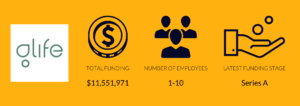
Glife Technologies is a seed-to-table startup, distributing fresh fruits, vegetables, and plant-based products to the HORECA industry. Today, it supplies more than 700 customers in the Singapore market and has expanding operations in other Southeast Asian markets.
Since its launch in 2018, Glife Technologies has evolved from being focused on cutting out the multiple middlemen between farmers and restaurants to being a vertically integrated solutions provider within the agri-food industry. The COVID-19 pandemic has significantly disrupted the industry, bringing to light the imperative need to adopt technology across the food value chain to improve efficiency and profitability in this space.
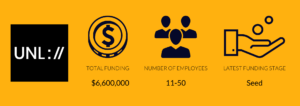
UNL is a smart micro-location and mapping platform building the Internet of Places. UNL has pixelized the world to digitize physical locations and give them a unique verifiable digital address – UNL geoID – with a precision of as small as 1x1cm2, including outdoor, indoor and in elevation.
UNL gives companies the mapping, location, and data tools to create their Virtual Private Maps at the push of a button. Businesses can bring and manage their data, tap into their workforce experience regarding local navigation and train their own UNL private routers for optimal efficiency.
Adding a programmable layer to real-life locations, UNL is building the Internet of Places – a digital 1:1 geodata twin to transform places into the next digital platform, powering location-based services from eCommerce and last-mile delivery to smart city and autonomous solutions.
Innovation in the mapping and geospatial space so far has been largely focused on data, content, and data visualization. However, new technologies like autonomous vehicles, drones, 5G, and IoT, among others, are bringing in a demand for a new wave of innovations in the industry. Micro-locations and hyper-local data will be critical to the success of these new technologies and the evolution of the location-based economy.

A 5G-IOT-enabled Electric Scooter manufacturer designed for urban riding. Sleek’s mission is to build innovative and benchmark-setting vehicles designed around urban lifestyles, practicality, and performance for a greener future. Sleek’s users enjoy a seamless customer experience through its IoT-enabled vehicles and mobile application.
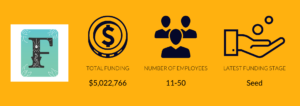
Fefifo is pioneering digitalized, standardized farming in ready-to-farm modern farm spaces called Co-farms. Smallholder farmers can start their commercial farms in their ready-built Co-farms with managed farm services. They grow pre-curated short cycle cash crops with digital crop models and growing protocols to standardize and automate their seed-to-sale workflows, and sell to reliable, profitable contract buyers.
80% of the food that Asia consumes is produced by smallholder farmers. 65% will retire in 15 years and traditional farming is not profitable enough to attract the next generation. Bringing up smallholder farming efficacy and profitability through modernization is key to feeding 8.5 billion people by 2030. Fefifo is the first to focus on standardizing smallholder operations, and they do that by combining digitalization of commercial farm workflows and democratization of costly farm systems and infrastructure with a business model that is relatable to smallholder farmers – rental (aka, “Farm space-as-a-Service fee”) and crop profit sharing.
Partner With Storm4
Storm4 focuses on the tech industry aiming to create a more sustainable tomorrow. From Future Mobility, Circular economy, and Clean Energy through to Smart (Grid, Metering, Water, Home, Energy analytics), AgTech and Food, Energy Storage, and Decarbonisation, Storm4 will focus on connecting the best GreenTech talent to the most innovative Sustainable Technology businesses worldwide. We are a specialist recruitment scale-up launched in February 2021 and now the company has expanded to service the APAC region.
Storm4 is here to accelerate the journey towards a sustainable future.







